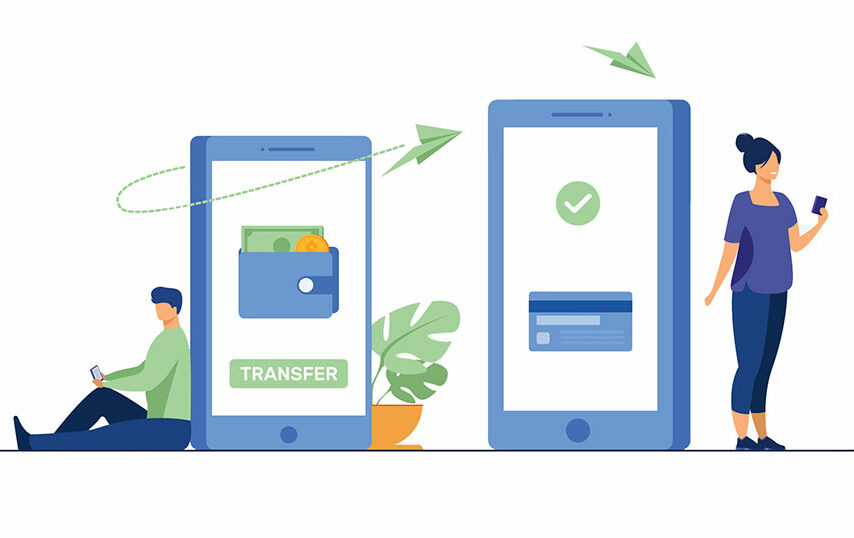The success of a business depends on how stable its finances are. Effectively managing a company’s finances is crucial for its growth, sustainability, and profitability. Protecting financial transactions from fraud and cyberattacks is crucial for the success of a business.
When financial transactions are compromised, the impact can be catastrophic. Financial fraud can cause substantial monetary losses, legal responsibility, and reputation harm, all of which can jeopardize a business’s sustainability. Fraudulent activities can cause businesses to suffer financial losses, fail to meet financial obligations, and ultimately shut down.
Unfortunately, digital technology and online banking have increased financial fraud and cybercrime. Regardless of whether you’re sending payments to suppliers, issuing employee salaries, or making purchases from vendors, taking measures to safeguard your finances and prevent unauthorized access is essential.
Tips to ensure safe business money transfer
- Use Two-Factor Authentication (2FA). Using 2FA in business money transfers adds an extra layer of security to the authentication process, making it harder for unauthorized parties to access your account or conduct fraudulent transactions. This helps verify your identity and prevents unauthorized access by cybercriminals who may have acquired your password through hacking or phishing.
- Verify Recipient Details. Verifying the recipient’s information, such as their name, account number, and routing number, is crucial before initiating any financial transaction to prevent errors or fraudulent activity. Even minor mistakes can lead to funds being transferred to an incorrect account, which can be challenging or nearly impossible to retrieve. It is advisable to take the necessary time to authenticate the recipient’s details and ensure that the information is current and precise by communicating with them directly.
- Keep Software Up to Date. It’s important to install updates for your banking software and apps as soon as they’re available to keep them secure. These updates often address known vulnerabilities and can help prevent unauthorized access to your accounts.
- Use Strong Passwords. Weak passwords are very easy to hack, no matter what platform it’s for. To establish robust passwords, employ a blend of letters, numbers, and symbols, and avoid repeating the same password for various accounts. You may want to think about utilizing a password manager to create and store strong passwords in a secure manner.
- Limit Access to Your Accounts. By restricting access to your accounts, you can reduce the chances of unauthorized transactions or any other malicious financial activity. Only authorize employees or team members who need to access your banking information to do so.
- Check Your Account Regularly. Regularly monitoring your account activity can help you catch any suspicious transactions or unauthorized access. Set up alerts for large transactions or unusual activity, and review your account statements regularly to ensure that everything looks accurate and legitimate.
- Be Wary of Phishing Scams. Phishing scams involve cybercriminals trying to deceive you into sharing your account details or sensitive information by pretending to be someone trustworthy. It’s a common technique used by hackers. Be cautious of emails or texts from unknown sources or with suspicious links or attachments.
- Use Encrypted Connections. Encrypted connections ensure the security and privacy of your financial information. Encrypted connections use advanced algorithms to encode your data, making it unreadable to anyone who intercepts it during transmission.
- Keep Physical Records Secure. To protect your banking information, keep physical records in a safe place and shred any documents with sensitive data before throwing them away. Taking this precaution can stop others from accessing your account without permission and keep you safe from identity theft.
Selecting the appropriate company is a crucial step in guaranteeing the security and effectiveness of your financial transactions. There are many options available, including traditional banks, online payment processors, and specialized money transfer companies.
When choosing a financial service provider, seek out one that has a robust reputation for security and dependability. Check for accreditation and licensing, and examine feedback from other business owners to gain an understanding of the company’s track record.
Be aware of the fees as they will depend on the type of transfer you’re doing or the company you’re sending it too. Look for a company that offers transparent pricing and competitive rates, and be wary of any hidden fees or charges.
Finally, consider the company’s customer service and support. Make sure the company you select has a dedicated representative or support team to assist you with any questions or concerns you encounter during your financial transactions.
In conclusion, following these tips for secure business money transfers can help protect your finances and keep your business running smoothly. To lower the risk of financial fraud and cybercrime, you can secure your accounts, verify recipient information, use strong passwords, and pick a trustworthy service provider. By researching thoroughly, checking accreditation and licensing, reading reviews, and ensuring reliable support, you can make the right decision for your business’s financial needs. By implementing these precautions, you can concentrate on expanding and developing your business, with the peace of mind that your finances are protected.







